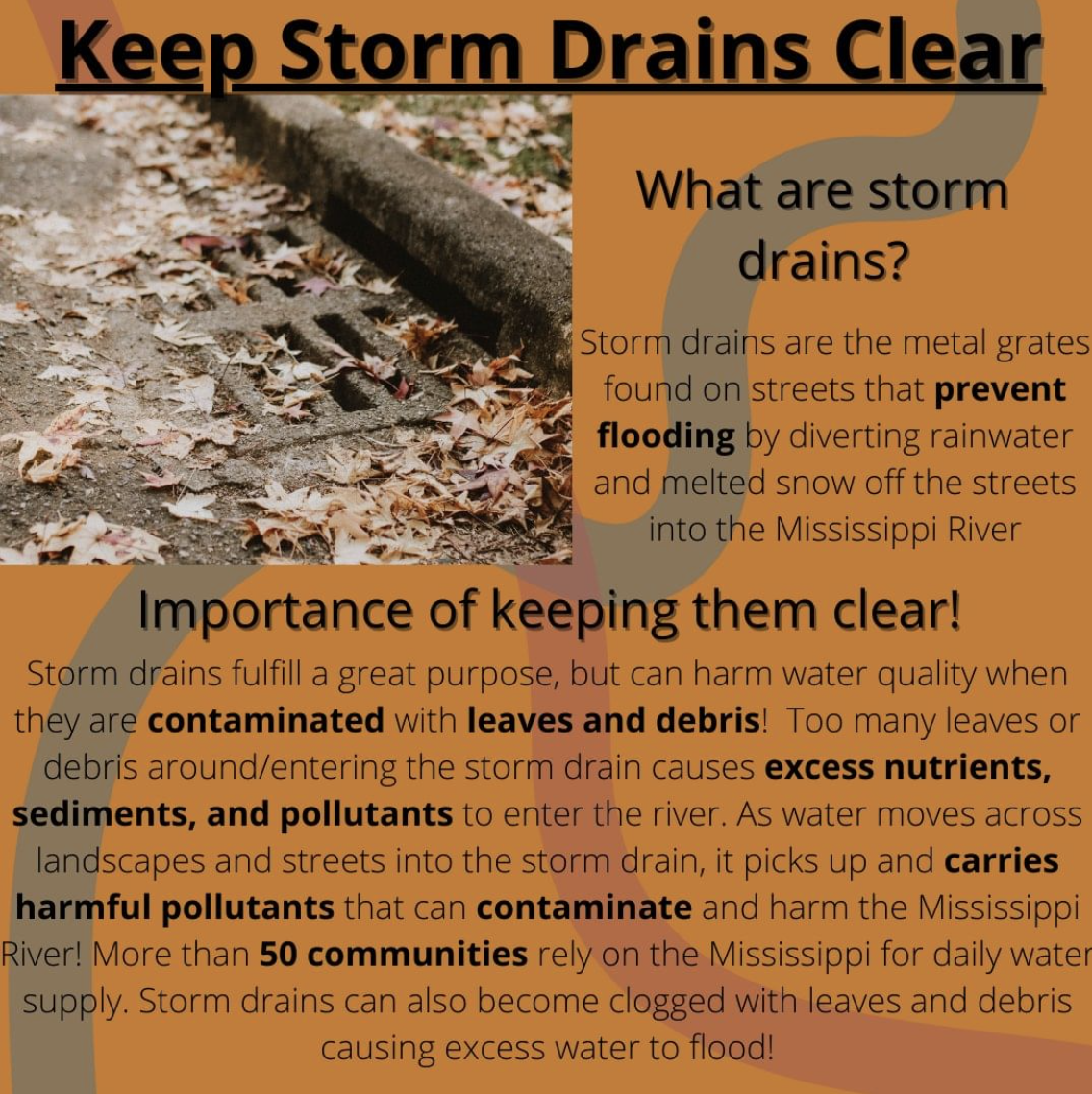
Storm drains are drains found on streets, curbs, sidewalks and on other impervious surfaces to prevent flooding and divert rainwater and melted snow off the streets and into the Mississippi and other local water bodies. Storm drains fulfill an important purpose but can harm water quality because the water they collect, and all the pollutants it carries, goes untreated into the Mississippi and other local water bodies. Too many leaves or debris around/entering the storm drain causes excess nutrients, sediments, and pollutants to enter the river. As water runs across landscapes and streets into storm drains, it picks up and carries away pollutants such as cigarette butts, trash, salt, vehicle fluids or yard waste. These pollutants, sediments, nutrients and bacteria can have harmful effects on aquatic ecosystems and human health. This contaminated, untreated water eventually makes its way into the Mississippi River where it contaminates water, reduces water quality and clarity, and can cause harm to fish and wildlife.
More than 50 communities rely on the Mississippi for daily water supply (NPS), thus we must keep our storm drains CLEAN and CLEAR from all debris! Excess leaves and debris around storm drains can also clog and flood the drains and the surrounding area. The University of Minnesota's commitment to addressing storm water runoff from campus, as detailed in the campus-specific Storm Water Pollution Prevention Program (SWPPP), is to reduce pollutants to the maximum extent practicable.
YOU can help alleviate this problem by sweeping leaves and debris AWAY from storm drains and streets, inspect and clear storm drains periodically, and notify the city if any repair or replacement is needed! Learn more about stormwater at the University of Minnesota at: http://z.umn.edu/stormwater!